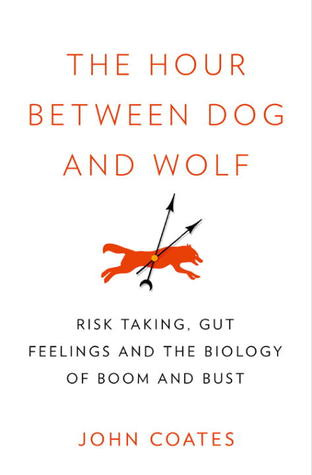Greetings from Roll the Bones! Here we muse about complexity, learning, epistemology, accomplishing goals in complex environments, and whatever else I might be in the mood to discuss.
One thing I want to drive home is that life is not a game. The only simple, widely-understandable rules it follows are given by God Himself. In all other aspects, things are often more complex than they appear.
A quick question:
If you were to attend a seminar or workshop on the sort of things in this newsletter, what would you want the topics to be? What sort of qualifications would you expect from the presenter/teacher? If you have an opinion, please share it in this linked survey. I’m not collecting emails, not limiting to one response, and not tracking individuals. No need to respond if you’re not interested or uncomfortable doing so, but I am asking for your help.
This Week’s Links
There are no affiliate links here, just things I’ve been reading.

Ergodicity
This is a concept that pokes holes in a lot of conventional economic wisdom. The terminology is a bit obscure for me, so I’ve linked a document that summarizes the findings “in plain English”. I’m no economist by any means and there’s a lot I still don’t understand, but it feels like an important new development worth trying to understand.
My thoughts:
One way to explain ergodicity is: in a system where you can be in lots of states (for example: poor, middle class, rich) that if you lived forever you would find yourself spending time in all of them (money is in fact not usually ergodic). Ergodicity is the absence of “absorbing states” that, once you’re in them, it’s pretty hard to get out of them.
A lot of the modeling of human behavior assumes ergodicity, but that’s wrong. A gambler who goes to a casino 100 days in a row doesn’t have a winning % according to some fancy formula if he goes broke on day 6. There *is* no day 7-100 for him. Most economic models are more like assuming 100 people go to a casino 1 time, but then are applied to 1 person going to a casino 100 times.
There might be some partial explanation of why the poor tend to play the lottery here. Even though the odds are awful (not that we compute odds in our heads like economists sometimes pretend!), it may feel like the only shot to get out of a tough situation.
We must look at what people actually do and why, not what we think they might do “if they were rational”. Optimism in the power of technology to make the world better depends on it matching up well with reality and all of its messiness, not simple models of how the tech *should* affect society.

Proving the Morality of an AI
All discussion of how soon it may happen aside, the quest for Artificial General Intelligence (AGI) - that is, intelligence that is very much like a human - goes on. This raises questions of ethics. An eschatologist who goes by Jeremiah had a very interesting take on the dilemma, drawing parallels from some religion’s (including my own) views of why we humans are here on earth, where we came from, and what happens after we die.
My thoughts:
If we are going to create something with perhaps Godlike power, perhaps we ought to prove its morality is compatible with our first? After all, an intelligence not raised as a human may have very different values than its creators.
Thinking of intelligence as disembodied, like a brain floating in a vat, is probably very limiting - especially when it comes to teaching that intelligence morality, or even letting it develop its own.
Perhaps artificial intelligence needs its own plan of salvation.

Full-Body Decision Making
This link isn’t something you can read in one sitting, unfortunately. It’s a book that I highly recommend. It’s by John Coates, a trader-turned-neuroscientist. He explains in great but accessible detail how our whole bodies are involved in our decision making. We don’t think with just our brains, not by a long shot. If you don’t have time for the book (which your local library may have in stock!), there is no shortage of reviews and summaries online you can consult.
My thoughts:
Human cognition is not a brain in a vat. It is embodied. I’d like to know who is working on this when it comes to artificial intelligence, or maybe contribute to the field myself some day.
Those who think that they make their decisions “purely rationally” are probably just blind to their biases. It takes humility to acknowledge there’s more going on inside our heads/bodies than we notice.
You and I are “collectives”. We’re made up of countless cells, organs, and systems. All the different parts work together to make what we think of as “me” or “you”, and it’s not 100% top-down controlled by consciousness. It’s not as simple as a ghost piloting a meat puppet, even if (like me) you believe in a spirit or soul.
Thank you for reading and engaging.
I appreciate you taking a chance on this newsletter. It’s free, but if you want to help support it you can always
You can also engage with me on Twitter at @10101Lund about these or any other topics. Archives of this newsletter are here.
Tell a friend. See you next issue!


You may want to check out "En Levande Själ", a Swedish novel about a literal brain in a vat. I don't know if there are good English translations out there, ymmv. But it's an interesting musing on mind, body, emotion, and identity.